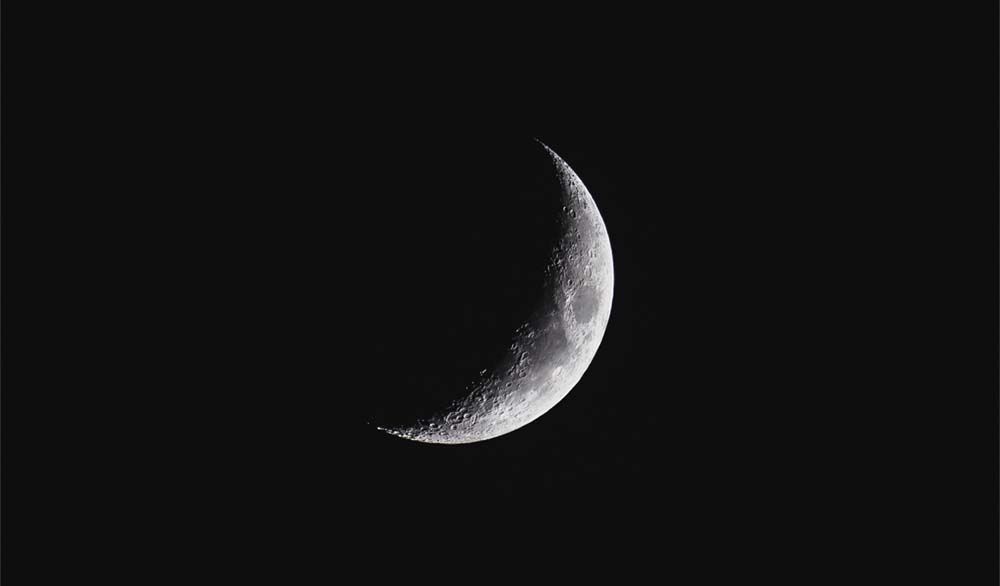Did we really land on the Moon?
Recently we were following this story of an attempt to send a new unmanned lander to the Moon (https://www.bbc.co.uk/news/science-environment-67929439). Unfortunately, a technical fault led to a fuel leak which meant the mission wasn’t going to be able to land the payload on the Moon this time round. It prompted us to spend a moment reflecting on the question: ‘Did we really land on the Moon in 1969?
In this article:
We still believe they did it in ’69, what about you?
Some thoughts related to the Apollo moon landings

We still believe they did it in ’69, what about you?
So, did we really land on the Moon? We think they did it, but with an enormous amount of good fortune and a lot of very inefficient but simpler technology that was actually less complicated and less likely to go wrong than the newer experimental technologies of today. There was a lot of hard work alongside the darker side of perhaps stealing secrets from other nations – we may never know the full truth. Of course, knowing the truth brings power and responsibility in the world.
Either way it is a mind-blowing thought to understand just how many things had to come together for man to step out onto the surface of the Moon for the first time. Some may say it was a miracle that we made it at all – and, of course, it wasn’t without much heartache along the way especially in the early days – and as space travel has developed further.
We know as Christians we live in an imperfect world tainted by greed, money, corruption and the search to be better and proud. We pause a moment here, to take time to consider and reflect on the true human cost involved in the original space race.
Without a doubt
If you read the whole Apollo story and the facts and figures around the science and technology used as well as accounts of film being ‘lost’, shadows wrong on photos etc, it is as easy to build a case to doubt the Apollo moon landings as it is to build a case to accept it – without a doubt. We’ve included a link to the NASA website for the story of the Apollo mission in our further reading section.
Thinking about conspiracy theories – no shortage of those when it comes to the Bible… and religion too!
Of course, this is another opportunity for conspiracy theorists, who believe that the Moon landings were faked (though there are photos of the Apollo landing sites taken by the Lunar Reconnaissance Orbiter – https://www.lroc.asu.edu/featured_sites/#ApolloLandingSites – conspiracists would of course say these are fakes too).
Why so difficult to get to the Moon today, if it was so ‘easy’ back in 1969?
Watching what is happening today in terms of specifically human space travel, it does seem to be proving more difficult to properly get out of earth’s orbit, let alone get to the Moon today rather than in the 1960’s – even with all the advancement in technology and despite Elon Musk and a bunch of companies all working on ways to get humans back to the Moon.
So how did they do it in 1969… and several times thereafter until 1972? This is just a thought for the day, to reflect on the achievements of science and humankind but, more importantly, an opportunity to pause a moment and consider God’s creation – the universe and the earth and our place in it.
A Christian insight on doubting the moon landings from Answers in Genesis
The following is quoted from an article by Dr. Danny R. Faulkner on the Answers in Genesis website titled ‘Did We Really Land on the Moon?’
‘Two of the twelve men who walked on the moon later were born again Christians, Charlie Duke, and the late Jim Irwin. Both of these dedicated Christians wrote books in which they shared their testimonies and their experiences as astronauts. To doubt the Apollo moon landings amounts to accusing two Christian brothers of lying about the biggest thing that ever happened to them, of course apart from their salvation. The biblical standard for establishing such a matter is two or three witnesses (Deuteronomy 17:6; Matthew 18:15–17; 2 Corinthians 13:1). These two Christian astronauts certainly suffice as reliable witnesses, so we can be assured that the Apollo astronauts indeed walked on the moon.’
We can’t verify the accuracy of the quote, but if accurate, it is food for thought.
Some factual thoughts related to the Apollo moon landings
The financial cost – possibly one of the biggest reasons we’ve not been back. Let’s not forget the Bible has a lot to say about money!
One of the reasons why we may not have returned to the Moon in the intervening years is money – this is perhaps one of the bigger reasons why no-one has tried to go back until now. Apparently, the United States spent $25.8 billion on Project Apollo between 1960 and 1973, or approximately $257 billion when adjusted for inflation to 2020 dollars (source: The Planetary Society). After the initial excitement of the first Moon landing interest by the general public at the time dropped off.
A universe view – so near, yet so far
Also, to put this into a biblical perspective, the Moon is approximately 384,400 km (source: NASA Space Place) away, and it is a large object in the night’s sky that we know is there – we can see it. Jupiter – which we can see fairly well with powerful telescopes is 685,796,691 km away (source: The Sky Live).
Fancy a ‘road trip’ to Jupiter – how long might it take today using known science facts?
According to the website Love the Night Sky ‘...depending on whether you want to skim by Jupiter or stick around, it will take you anywhere between 546 days to 2,242 days. The shortest time a spacecraft has taken to get to Jupiter from Earth is 546 days or 17.9 months. The longest journey took 2,242 days or 6.1 years.‘
If there was nothing practical stopping us today from getting to Jupiter – you know, the little details like gravity and lack of anything much in space including air. Then there’s also the fact that our current technology has only got humans as far as the moon, oh, and don’t even mention the cost of a ticket for the journey! It would take quite a while to get there, but you could still reach Jupiter in an achievable lifetime time-frame. We’ve looked at this, so you have a better idea of the scale in the paragraph below…
The wonder of the size of the universe
So, while in theory we could get to Jupiter on current tech, the thing is, just the nearest one star to us in our galaxy is 40,208,000,000,000 km away – and that is a very long way let alone if you actually intend on doing a round-trip! Science fiction takes over at this point, and your guess is as good as mine in terms of understanding and traversing the wider visible universe beyond the solar system – such is the vastness of the wonderous universe that God created!
So why is any of this important?
By this point, it perhaps becomes merely interesting to ponder the endless possibilities since we can only imagine such things considering the whole universe can open up such as saving humankind, limitless supplies of environmentally safe fuels, unknown new treasures. For some, even the notion that in such a vast, limitless expanse there ought to be other ‘life Jim, but not as we know it’ – of course, that depends on your personal Biblical viewpoint.
Many Christians believe that the earth is the only place in the entire universe where we, and the animals, exist and there is no planet or life elsewhere like earth. Rather, everything else is there to simply remind us when we look up how awesome God and his creation is.
To that end, perhaps with regards to the question ‘Did we really land on the Moon?’ it might be helpful to be able to draw a conclusive answer without any doubt and so move on.
Whatever is true, this always remains…
Perhaps you have already made up your mind without any doubt what the truth is. However, perhaps there are even bigger truths still to grasp and accept – also without a doubt…
‘The Pale Blue Dot’ (the name given to a photograph of Earth taken Feb. 14, 1990, by NASA’s Voyager 1 at a distance of 3.7 billion miles) is OUR pale blue dot – our home uniquely created by God – as most Christians believe. In the light of this we are reminded of the most profound very first 10 words of the Bible: ‘In the beginning God created the heavens and the earth.’ (Genesis 1:1).
The fact remains that Earth has always been our home and always will be no matter where we go and what we do from here.
We also – each uniquely created by God – should never lose sight of the fact that we have all been given the responsibility first and foremost to look after and take care of our little pale blue dot and everyone on it. This is a truth, without a doubt.
Next time you look up to the stars, or you point a planet finding app on your phone up to the heavens to find Jupiter, be reminded of the unique place we have in the universe – our pale blue dot – created with all we need to live and sustain us (if we choose to look after it and each other properly). As for whether there’s other life out there, but not as we know it, we can only shrug our shoulders and say ‘who knows?’. Knowing at this very point in time, only God knows the answer to that question without a doubt.
Moon photo by Luke Stackpoole on Unsplash.
Further reading and reflection on the subject ‘Did we really land on the moon?’
The Apollo program – NASA
An answer to our question from Answers in Genesis (Answers in Genesis)
What does the Bible say about the Moon? (Bible Society)
Communion ‘on the Moon’ – 2019 article marking 50 years since the Moon landing of Apollo 11 (Church of England)
Science alone wouldn’t have put man on the Moon. We mustn’t forget the ket role of faith (The Telegraph Newspaper)
One giant … lie? Why so many people still think the moon landings were faked (The Guardian Newspaper)
Religion in space (Wikipedia)
‘Huge moment for the church’ – Christians respond to NASA’s discovery hinting at signs of alien life (Premier Christian News)
The Beginning of All Things: Modern Perspective from Lemaître to Hawking (The Faraday Institute)
Should Christians Support Space Exploration? (Answers in Genesis)
Space, Science and Scripture (Christianity Today)
How would it impact the Christian faith if it was discovered that aliens exist? (Got Questions)
Christians in space: Taking the creation mandate to the stars (Focus on the Family Canada)
Astronauts explain why no human has visited the moon in 50 years — and the reasons why are depressing (Business Insider)
Why did we stop going to the Moon? (Royal Museums Greenwich)


